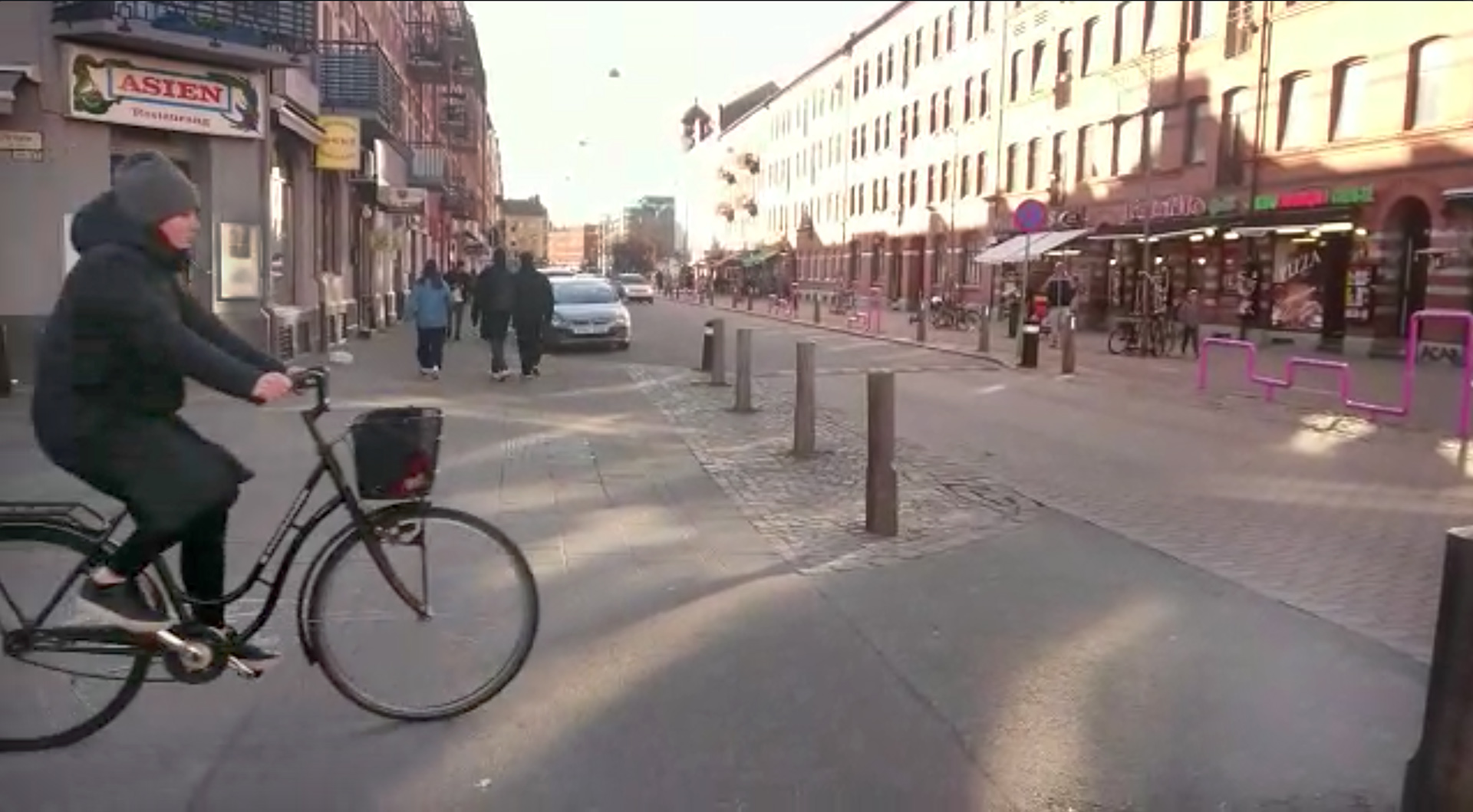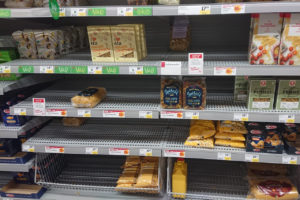
When the coronavirus outbreak swept the world, most European countries shut down all non-essential businesses and began monitoring their borders.
Sweden had a different idea.
While surrounding Scandinavian countries like Norway, Denmark and Finland are on lockdown, Sweden decided to shut down only its high schools and colleges. The government decided to keep preschools, grade schools, pubs, restaurants, and country borders open. Even its ski slopes remain open for locals and tourists.
In lieu of more drastic measures, the government is leaving it up to its citizens to act responsibly and follow social distancing guidelines.
For him, life hasn’t changed much, says Charles Drury, a Swedish graduate student at Lund University in Malmö, one of Scandinavia’s oldest and largest research and educational institutions. He’s going to stores, meeting up with friends, and hanging out at his local bar.

“People are still going out and socializing and people are still shopping and going out to restaurants,” Drury said. “A lot of the reasoning behind this is based on personal responsibility. The authorities are doing as much as they can to urge people to stay inside, but they’re trusting individuals to stay home from work if they’re not feeling well.”
Instead of mandating restrictions, the government has urged its citizens to act responsibly and to follow social distancing guidelines voluntarily. In early May the Public Health Agency of Sweden reported that Sweden had 19,621 confirmed Covid-19 cases, 2,355 deaths, and 1,005 citizens who have recovered from the virus.

The person behind Sweden’s unconventional reaction to the response is Anders Tegnell, the chief epidemiologist at Sweden’s Public Health Agency.
“We are trying to slow the spread enough so that we can deal with the patients coming in.” he said in a press release in April.
Sweden’s approach to the pandemic stems from the Swedish citizens’ self-restraint, sense of responsibility, and mutual trust in their government, according to Tegnell.
“That’s the way we work in Sweden. Our whole system for communicable disease control is based on voluntary action.”
“The immunization system is completely voluntary and there is 98 percent coverage,” Tegnell said. “You give them the option to do what is best in their lives, that works very well, according to our experience.”
Lund University has taken a more aggressive stance. Since March 18, Drury has taken all his classes and examinations online. Meetings and other gatherings are being held remotely until further notice. All non-essential university business travel has been canceled as have study abroad programs.
Despite Sweden’s low-key approach to the pandemic, sales figures from March show that consumers have been stockpiling food and toilet paper. Drury said he hasn’t felt the need to stock up on necessities because he trusts his government to make the best decision for its people.
“I think this is more of a calculated risk. The downside of shutting down everything immediately is the toll it would take on the economy,” Drury said. “It would take a way bigger toll than the coronavirus is taking on Sweden right now.”
According to figures from Johns Hopkins University, the death rate in Sweden has risen significantly higher than many other countries in Europe, reaching more than 22 per 100,000 people.
Drury said that in his opinion, Sweden’s healthcare system is not what it used to be, he’s worried that they’re not fully prepared for an epidemic this large. He’s also worried about the food supply. Sweden imports only about 20 percent of its food supply, according to the United Nations Food and Agricultural Organization. Although for fresh fruit and vegetables, the import share is substantially higher, over 70 percent. The pandemic may be changing perceptions and heightening anxieties about the availability of some of that food..
“Sweden used to have big storages of food but that was taken away in the early 2000s because the country wanted to just rely on the European market if something happened. So now, all our food is imported from Spain.,” Drury said. “What will happen if they can’t export any food to us?”
While Drury said he is generally satisfied with the government’s handling of the pandemic, other Swedes are not. On March 28, a petition signed by 2,000 researchers called for the nation’s government to “immediately take steps to comply with the World Health Organization’s (WHO) recommendation,” on social distancing, closures, and testing for the virus. The petition also charged the government with attempting “to create a herd immunity, in the same way that occurs during an influenza epidemic,” a strategy, the petitioners wrote, that has “low scientific support.”
Swedish authorities have denied that they are aiming for herd immunity. Yet in one sign that they may be responding to critics, the government has lowered the limit of people allowed at a public gathering from 500 to 50.
“It’s a weird situation, as a human being not having social contact, I think it’s a challenge to your sanity,” Drury said. “During our time isolated I feel like there’s a lot of introspection and looking inwards and dealing with being with yourself. Which can be useful to us.”
